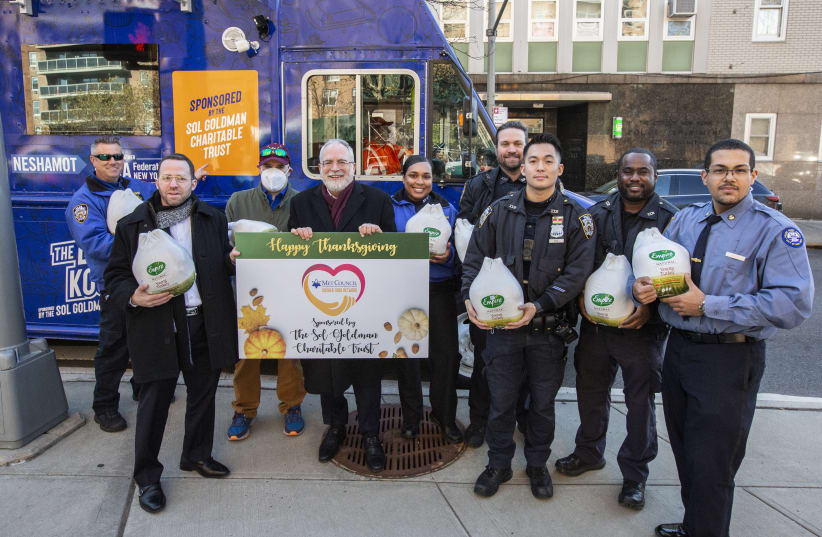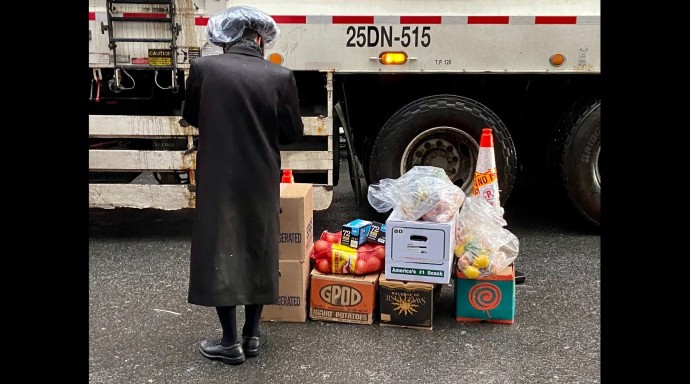WASHINGTON – David Greenfield, CEO of the Met Council has a busy schedule ahead of Thanksgiving. His food bank – the biggest Kosher food bank in the US – is in a run to serve 135,000 people in need ahead of Thanksgiving.
Greenfield’s organization is providing Kosher food to 101 food pantries, mostly around New York and New Jersey’s Jewish communities. The combination of a slowing economy, rising inflation and massive layoffs, he said, are making grocery shopping this holiday much harder for families.
“in the past year, the cost of a typical Thanksgiving dinner has gone up 26%,” said Greenfield. An average turkey was approximately $21 last year. This year it's approximately $30.”
“in the past year, the cost of a typical Thanksgiving dinner has gone up 26%,” said Greenfield. An average turkey was approximately $21 last year. This year it's approximately $30.”
David Greenfield, CEO of the Met Council
“Everything from the turkey to the stuffing to the fruits and vegetables to the rice has gone up because of inflation,” he explains.
Greenfield is an adjunct professor at Brooklyn Law School. Prior to joining the Met Council, Greenfield served for eight years in the New York City Council. The food bank usually provides 22 million pounds of food a year, he said. But planning this year was harder.
The needs of New Yorkers
“We generally budget for the neediest New Yorkers. This year has been tough because a lot of people who generally would not come to us are now coming because between inflation and the fact that you have significantly higher than average unemployment, we have more people who are coming to us than ever before.”
The challenge, he said, was operating without receiving funding from the federal government. “Jane Goldman, from a very well-known real estate family in New York, helped us with an extremely generous donation that helped us keep operating through this holiday season,” he said.
“I'm driving right now to one of our sites in the city where we're doing the food distribution tonight, where we're going to be packaging and distributing food and the food tomorrow is going to be going delivered to the homes of Holocaust survivors, many of whom are homebound,” he told the Jerusalem Post. “We're putting things like little pies and pumpkin spice.”
“This is a very unique challenge because traditionally the challenge that we've had in other fiscal crises has really revolved around people who are unemployed, Greenfield continued.
“In this crisis that we're going through right now, which is an inflationary crisis, what we're seeing is people who are working, and they have jobs. It's just that the cost of electricity has gone up, and the cost of gas has gone up. people who have been able to make [it] in the past are not able to do so now. And that's why actually it's a very different crisis.”
“A family of five, who was able to get by with 70, 80, maybe $100,000 - what's happening right now is that they can no longer make it with what they're having,” he added. “And that's really why it's such a big challenge because there are so many more people [in need].”
“We haven't seen anything like this in my lifetime, honestly. The last time we saw this was in the early 1970s,” Greenfield said. “People say, you know, I have a job, I can't take another job. But I still am sure. $4,000, $2,000 every month.”
And while all the items in the food bank are Kosher, Greenfield emphasized that the organization supports Jews and non-Jews alike. “Obviously most of our population is Jewish, but we serve everybody,” he said. The organization runs a 25,000 square feet food warehouse in Brooklyn and employs 50 people.

